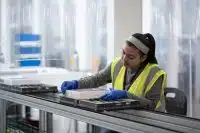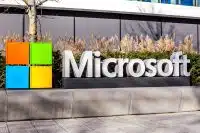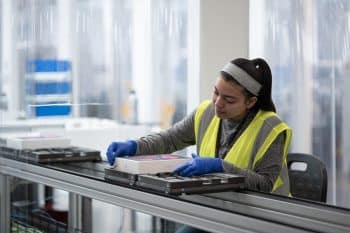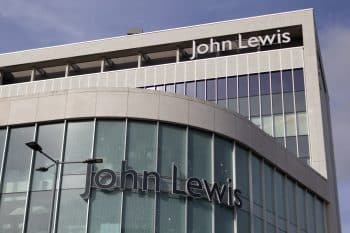Home » Business News » How US businesses are offering new perks to get staff back into the office
How US businesses are offering new perks to get staff back into the office
https://www.whatjobs.com/news/business-news/how-us-businesses-are-offering-new-perks-to-get-staff-back-into-the-office

By Hugh Fort in Business News, posted May 25, 2022
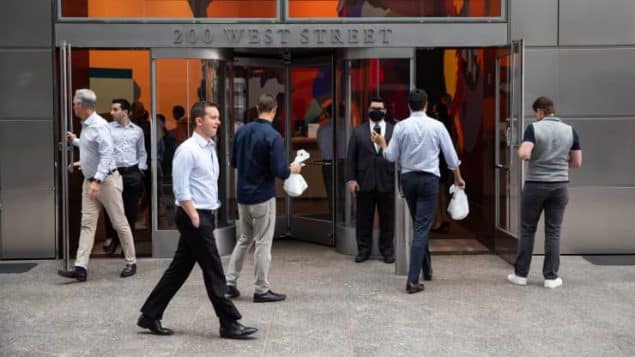
Since the pandemic started, thousands of workers across the globe have turned to remote work.
Several recent studies indicate many employees have said remote work makes them healthier, happier, and more productive.
It is particularly favored by people in underrepresented groups who feel more included and less anxious when working from home.
READ MORE: “FEAR OF THE FUTURE OF WORK, FEAR OF WORKER AUTONOMY, FEAR OF LOSING CONTROL” – APPLE STAFF SLAM NEW WORK FROM HOME POLICY
Despite restrictions getting lifted, employees aren’t in any hurry to return to the office.
The labor market makes it harder for businesses to push people to come back.
Banks such as JP Morgan initially took a hard line to stop remote work, but they have backed down due to worker revolts.
That’s why many bosses are presenting sweeteners to anyone ready to turn off Zoom and come back to the meeting room.
However, will any of these tactics work?
Scooters and Teslas
Google - which has been met with resistance from Google Maps staff over the return- offers US-based workers reimbursements for a subscription to ride an Unagi electric scooter.
The service usually costs $49 a month and a $50 sign-up fee.
Employees must use the scooter at least nine times each month to qualify.
Unagi CEO David Hyman told The Verge: “They know there’s apprehension amongst employees, and people got accustomed to working from home. And they’re just trying to do everything they can to improve the experience of coming back.”
If a scooter seems like a disappointing bonus, real estate group CoStar chose to enter its in-person employees for a raffle to win a Tesla.
It also gave $10,000 in cash to a random in-person worker every single day for a month.
The company’s CEO, Andrew Florance, told the Wall Street Journal: “Yes, this is a lot of money, but in the context of a multibillion-dollar company with thousands of staff and hundreds of offices, it’s a drop in the bucket.
"So you can have some fun, you can incentivize people to do the right thing.”
Treehouses and virtual golf
Companies are betting that employees would like offices that feel more like home since they’ve got used to it.
At a conference named “Designing Workplaces for the Human Experience,” developers said they had designed Uber’s headquarters with indulgences such as outdoor terraces, operable windows, and a wellness center with swing seats.
One designer said they had designed a floor overseeing greenery to make “employees feel like they’re in a treehouse.”
In New York City, a real estate company has established virtual golf links that use infrared cameras and sensors to examine your swing.
Brian Wallick, the director of investments at Nuveen Real Estate, told the New York Post: "Adding an amenity like golf simulators helps to foster collaboration as part of a unique user experience, especially in a commercial office building”."
Four day weeks and paid time off
A survey discovered that the perks employees want aren’t free beer or ping-pong tables but the leeway to choose how and when to work.
Even the hybrid approach where employees come in for part of the week – is getting pushback.
Apple has glorified its products as allowing a new era of remote work, but it still requires employees to come into the office three days a week beginning in late May.
One said: “Working from home has so many perks. Why would we want to go back?”
Another complained that forcing workers to drive for two hours a day undermines Apple’s environmental goals.
CEOs have pushed the idea that employees have to choose between job stability and flexibility, but the pandemic has established that we can have both.
As management attempts to lure staff back to offices, more organizations offer increased or unlimited paid time off, childcare benefits, expanded sick leave, flexible schedules, employee assistance programs, and childcare benefits.
Some firms are testing out four-day workweeks while still paying workers for five and finding that workers are doing better and happier.
Free tacos and life-size chess
Businesses across the globe are hosting back-to-office parties, such as Microsoft’s lawn party with gyros, free tacos, a life-size chessboard, fried chicken, and a beer garden.
That was followed by Qualcomm’s huge gathering, where thousands of staff joined happy hour to load up on drinks, food, and t-shirts.
Goldman Sachs has tried to convince workers to get back to their desks by getting food trucks serving food ranging from doughnuts to lobster and playing live music outside its offices.
In some offices, it offers complimentary breakfast, lunch, ice cream, and dinner.
However, some companies are stepping back.
Meta raised rage among well-paid workers by hindering its free dinner from 6 pm to 6.30 pm.
Andrew Bosworth, Meta's vice president of augmented and virtual reality, supported the changes on a message board, implying employees were acting spoilt.
He said: “I can honestly say when our peers are cramming three to 10 to-go boxes full of steak to take them home, nobody cares about our culture.”
Cats and dogs
For the workers who got a pet in 2020 and didn’t reasonably consider how they’d look after it after lockdown, a handful of businesses are offering “pet stipends,” a monthly reimbursement for cat-sitting, dog-walking, or whatever care a pet may need.
This is quite a good idea since a recent survey shows two-thirds of pet owners have tried to look for more flexible jobs to have more time with their pets.
Multiple other firms are allowing employees to bring their pets to work.
The number of pet-friendly offices is increasing, and come prepared with chew toys, water bowls, and poop bags.
Follow us on YouTube, Twitter, LinkedIn, and Facebook





